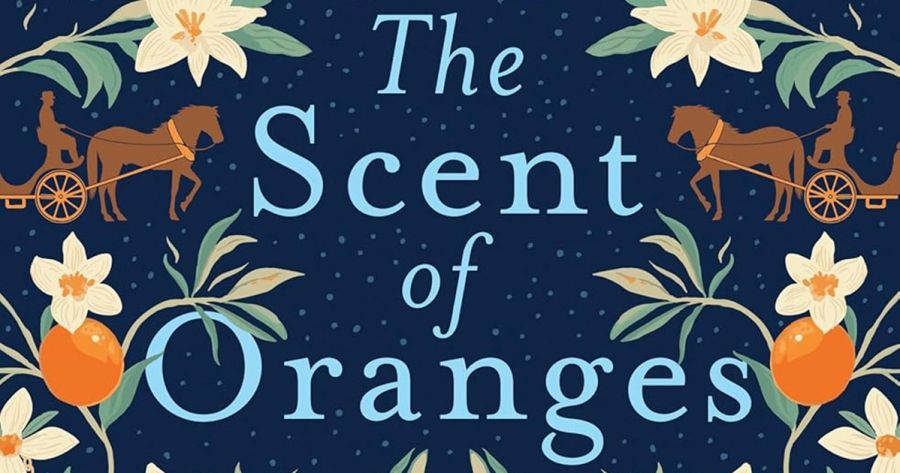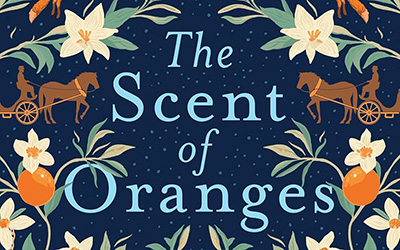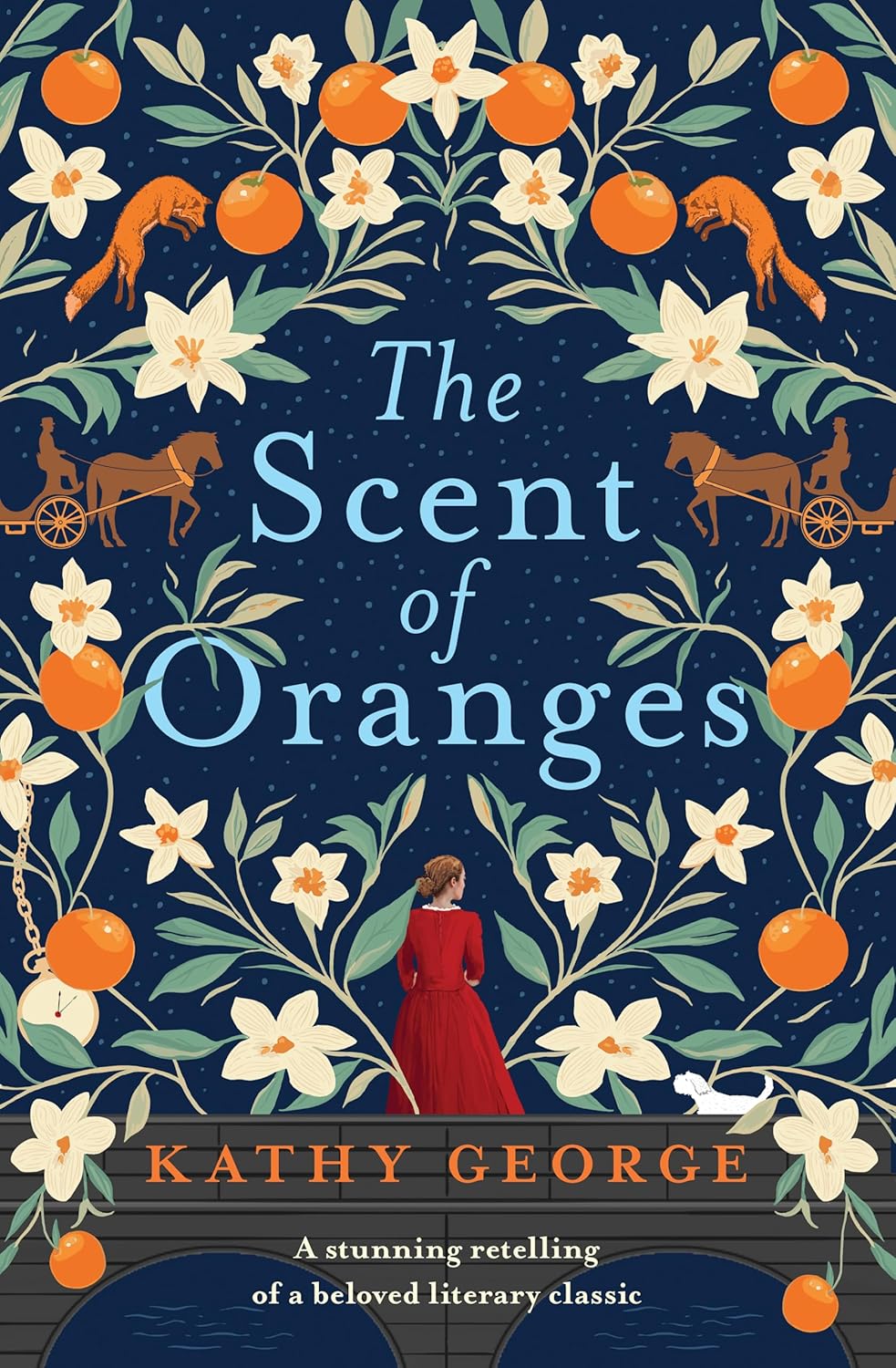
- Free Article: No
- Contents Category: Fiction
- Review Article: Yes
- Article Title: Why must Nancy die?
- Article Subtitle: A modern take on Oliver Twist
- Online Only: No
- Custom Highlight Text:
In The Scent of Oranges, Kathy George writes a new story for Nancy, the warm-hearted street girl in Charles Dickens’s Oliver Twist (1838). With a deftness that commands admiration, George sutures her story to parts of the novel written by Dickens almost two centuries ago, maintaining the integrity of all his scenes involving Nancy, preserving, while lightly adapting, much of his dialogue; borrowing some of his imagery, but interweaving those scenes with others of her own invention. It is so skilfully done that the stitches barely show, so it takes some time to realise just how much of this admirably Dickensian dialogue is in fact dialogue written by Dickens.
- Featured Image (400px * 250px):

- Alt Tag (Featured Image): Penny Russell reviews ‘The Scent of Oranges’ by Kathy George
- Book 1 Title: The Scent of Oranges
- Book 1 Biblio: HQ Fiction, $34.99 pb, 359 pp
- Book 1 Cover Small (400 x 600):

- Book 1 Cover (800 x 1200):

- Book 1 Readings Link: https://www.readings.com.au/product/9781867252320/the-scent-of-oranges--kathy-george--2024--9781867252320#rac:jokjjzr6ly9m
There are many ways to rewrite a classic from a new point of view, and perhaps as many motives for doing so. George chooses to keep largely intact all those scenes in Dickens’s narrative where Nancy plays a part: like Rosencrantz and Guildenstern in Tom Stoppard’s classic play, she is bound by the existing script whenever she steps on to the ‘stage’ of the original novel. Elsewhere, George is free to invent. But where Stoppard posed an existential question – where and what are these characters, outside the formal parameters of Hamlet? – George is more intent on adding layers to what we know of Nancy’s character.
In George’s novel, Nancy narrates her own story. This can work to good effect, bringing to life the explicable human emotions and bitter humour that prompt Nancy’s wild laughter and seemingly contradictory behaviour in Oliver Twist. George is perhaps too conscious of the difficulties of giving a narrative voice to someone who, she frequently tells us, is illiterate. Few readers would question this, were it not that Nancy goes to such laboured lengths to explain her rich vocabulary and sophisticated modes of expression: she has learned from the more educated Fagin, she tells us, who is ‘always teaching me new words’. She remembers them because she is ‘blessed with a good ear’. Lest we forget Nancy’s working-class status, however, George carefully spells ‘what’ as ‘wot’ and ‘can’t’ as ‘carn’t’ throughout the book, a superfluous and somewhat patronising device that Dickens, to his credit, mostly avoided. (In fact, Dickens endowed Nancy with the ability to read, forcing her new creator to edit out one betraying line of dialogue.)
George fleshes out a backstory for Nancy, showing us more of the loveless poverty that brought her to the streets, and adding texture and history to her relationship with Fagin and his gang and her bullied dependence on Bill Sikes. Perhaps less successfully, George also gives Nancy a whole new plot line. Fagin sends her to a new client, who brings colour and a hint of spice into her otherwise grey world. His name is Rufus; his hair is the colour of cinnamon. His house (well, one of them) is filled with sunlight and books. In his kitchen she finds an orange and is drawn irresistibly to its brightness, fragrance, and remembered taste and texture. Just once before has she tasted an orange, so she knows how the ‘delicate globules of sunshine … will explode in me mouth’. It recalls a rare moment of kindness from her childhood. She takes the orange and shares it with Oliver. Rufus, though seemingly aware of the theft, later gives her another. She is disarmed by his kindness, in this and so much else.
Though at first hesitant and sceptical, Nancy is beguiled by Rufus and drawn gradually into his world, especially after she agrees to participate in a daring and implausible masquerade. Starved of love from childhood, she will take it wherever it is offered: even, it seems, from an unnervingly helpless man with stalkerish tendencies and a mother fixation. (It is disturbingly unclear whether George actually wants us to find Rufus creepy, or just hapless and endearing.) Despite her upbringing, Nancy is generous and compassionate. Rufus appears to appreciate her innate goodness as well as her beauty, and to be astonishingly indifferent to the divisions of class. Can his ambiguous offer of a new life save her from Bill Sikes? Will open-mindedness and good sex triumph over unforgiving Dickensian morality? Only time will tell, and Nancy’s clock, as we must all know, is ticking.
The relationship with Rufus seems to exist on a plane of fantasy, never quite gelling with the other preoccupations of Nancy’s life. In part, that air of unreality comes from Nancy herself, who seems unable to believe in this tenuous promise of happiness. In part, it comes from the abrupt insertion into Dickens’s moral universe of some decidedly twenty-first-century attitudes to sex, morality, and gender. The prose may wind seamlessly between the world of Dickens’s novel and the world of George’s imagination, but the revolutions in moral perspective can be dizzying.
The Scent of Oranges rocks, but cannot quite shatter, the conventional moral frame and retributive justice on which Oliver Twist rests. In Dickens’s novel, the terms are stark: Nancy is torn between her protective, maternal feelings for Oliver and the inescapable bonds of her immoral relationship with the bullying, unworthy Sikes. She is a fallen woman whose only possibility for redemption lies in death. George’s novel holds a third way tantalisingly on offer: that Nancy could leave Sikes for another, less abusive man. Dickens would be unimpressed, but perhaps that need not concern us. More significant is the question of whether George, having muddied the waters of Dickensian morality, can deliver a denouement of equivalent emotional force to the original. For if Nancy does not have to die for redemption, does she have to die at all?


Comments powered by CComment